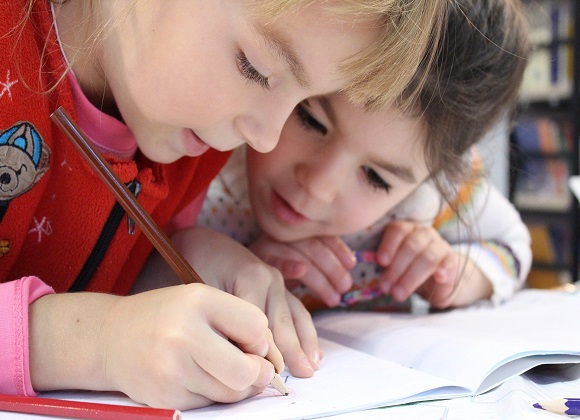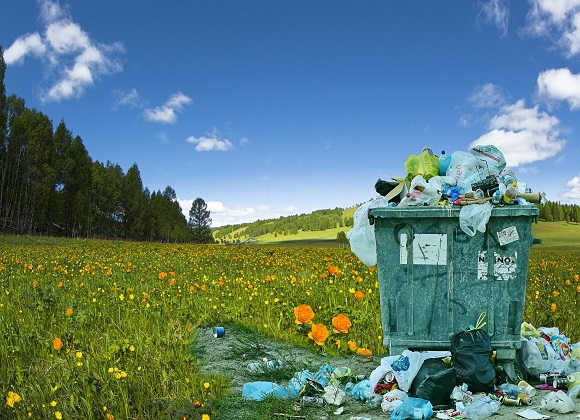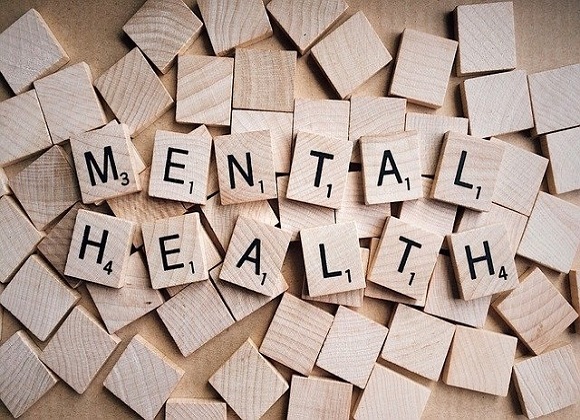Courses
Grow skills with quality courses
Pick of the week: Check out our round-up of this week's top picks from the most liked posts!

To be or to have?
I have a 10-year-old niece and every time she doesn’t feel like studying, her parents lure her into studying by talking to her, by activating her imagination. She’s been told that she’ll be able to buy an expensive car, she can have as many branded bags or clothes and all that she wants to ‘have’ in her life if only she studies. Kids are really smart these days with so much access to technology, thanks to COVID-19 their interaction with the online world has only increased. I did feel when I was her age, I wasn’t even aware of what brands are or the value it carries in people’s life. While on one hand, there is nothing wrong with it. Children have the most creative minds and parents, teachers can always activate this creative energy towards a beautiful dream. Each family or household has the right to decide a bar for themselves on how much money is sufficient for them.
It’s the readiness with which she agreed to sit for studying got me thinking the entire day. What if tomorrow she works very hard and despite that, she still isn’t able to live this dream. Won’t she find herself in a vulnerable place because her barometer for success will depend on what she has rather than who she is? I feel that the onus is on us as adults how we shape these nimble minds. Parents, teachers, guardians have so much ability to influence these young minds and hence it is important to become more conscious of this space. Do we want our kids to study only to have branded things in life? Is education only about possessing materialistic things or does it have a larger than life purpose? Shouldn’t we study to also ‘be’, to be a better human being, to be a responsible citizen of this country, to be more aware of the surroundings that we live in, to be more conscious of our choices (eg: being more environmentally sensitive, choosing a steel water bottle instead of the plastic one, supporting local artisans, etc).
I feel there is a dire need to change the narrative, these little minds will grow up to be the decision-makers of the country. If we only keep sowing these ideas of consumerism in these little minds, how can we build a more inclusive, equitable, egalitarian, and just society that the founders of the Constitution hoped for? Eric Fromm, a famous psychoanalyst talks about how modern societies have become so materialistic that it often forgets to talk about inner liberation and how we can break the chains of greed. With increasing cases of suicide, depression, anxiety, and to top it all, the ever-increasing unemployment rate in the country due to COVID - 19, we are craving all the more to be heard, to be able to speak up, to live in a non-judgemental society, to be accepted as we are and to accept others as they are. All of these events only indicate the need for much deeper, meaningful conversations in society, in schools, and in families.
Personally, for me, studying means to really absorb the new content, to learn, to unlearn, to apply, to question my own beliefs, hold spaces within my friend circle to understand their beliefs, and to finally have my own opinion. One of my mentors used to say that ‘Form follows Function’ and I firmly believe in this principle originally coined by ‘Louis Sullivan’. It just means to set an intention without worrying about the resources in hand. Everything will be taken care of if our intention is clear. What matters most is that whatever we do or intend to do is aligned with our purpose.
Before it gets too late, we must question ourselves and others around us. Question not to fight with each other but to become more aware, to help one another become more grounded in Universal Values. As Dr.Kalam used to say ‘Real education enhances the dignity of a human being and increases his or her self-respect’. Being crystal clear on our ‘Why’, ‘Why do we want to study in the first place’ will go a long way in keeping us, parents, children motivated, and to thrive and succeed in life.
.Udita Tiwari | 05 Nov 2020

What Are We Giving To Our Children?
Often I start my day with a morning run. The weather is cooler and I like to immerse myself in nature. The wonderful sight of green trees with warbling birds, squirrels jumping from branch to branch and dogs playing around fills my heart with love for mother nature. Spending time outdoors in nature revitalizes the brain cells and as a result, makes me more productive and focused throughout the day. On some days, if I’m unable to go outdoors, then just a splendid view of green land from the window of my room energizes my mind. There is something magical and mysterious about mother nature that works as an anecdote for the stress. Walking barefoot on grass, listening to music and reading a book under a tree, sometimes simply lying down in the lap of nature brings a feeling of serenity and tranquility.
But, in recent years, the air pollution level has increased tremendously. During winter time, the quality of air gets worse to such an extent that it is often advised by the doctors to stay indoors. In my opinion, we humans have taken our mother nature for granted. We have been over-utilizing the natural resources at an alarming rate. Besides over-utilizing the natural resources, we are also generating a lot of non-biodegradable waste. Harmful effects of using plastic are very well known, and then too we continue to use it on a daily basis. If we continue to utilize nature's gift(s) in an unsustainable way, our future generations will not be able to enjoy the beauty of our planet, as we do. Additionally, human activities such as deforestation inflict a great challenge for the existence of other life forms. Currently, the planet is facing several severe problems such as rapidly changing climate, melting of glaciers, severe heat waves, heavily polluted air and water, depleting ground water levels, forest fires in Amazon, extinction of several animal species, frequent earthquakes and with all this, a newly added problem- coronavirus pandemic. There are innumerable scientific reports that warn us about the irreversible climate change happening across the planet. All these issues make me ask the following questions:
Human activities such as burning of fossil fuels, deforestation and emission of greenhouse gases are mainly responsible for accelerating climate change. As a result of human-induced changes, frequency of natural phenomenons, for example- erratic rainfall patterns, cyclones have increased over the years. If immediate actions are not taken by us, it could lead to an uninhabitable “hothouse Earth''! source: WWF
source: WWF
This brings me to the actions/resolutions/changes that we all should implement to leave this planet for our future generations, as beautiful as it is. There are many simple things that each of us can do to minimize the human-induced impact on the earth. Remember the little changes that we do today will decide the kind of planet we give to our future generations. When I was in school, a concept called “sustainable development” was taught. Broadly speaking, sustainability is defined as the “meeting the needs of the present without compromising the ability of future generations to meet their own needs”. A basic idea of sustainability is to promote 3Rs- Reduce, Recycle and Reuse. We all need to implement 3Rs in our lifestyle to minimize the negative impact of humans on mother Earth.
The first R: Reduce
A first good step is to reduce the amount of trash produced in the houses. Avoid using single-use disposable items such as paper napkins, cups and plates. Don’t throw away the kitchen waste in a plastic bag. When you do that, it releases harmful methane gas into the environment. Rather, use leftover food waste such as fruit and vegetable peels, tea bags etc, to make compost and organic fertilizer for the plants. In this way, you can reduce your family’s carbon footprint. Besides this, always aim to reduce energy usage. Turn off lights and unplug the devices when not in use. Ride a bicycle instead of motor vehicles. Bicycling is the most efficient way of reducing the greenhouse gas emissions. Do you know a four-wheeler vehicle emits approximately 4.6 metric tons of carbon dioxide per year? Infact, you can calculate your family’ carbon footprint using online calculator https://coolclimate.berkeley.edu/calculator. I ride my bicycle daily to go to the office and reduce my carbon footprint as much as possible and trust me, riding a bike is the most pleasing experience!
The second R: Reuse
Instead of throwing items, try to look out for ways to reuse them again. Sometimes, all you need is a bit of art and creativity! For example- I often renovate my old jeans to a fancy bag with the help of tutorials available on the internet. Newspaper or any waste paper can be easily turned into paper bags. It can also be used to pack items or to make innovative DIY crafts and projects. If you can’t reuse, then donate old items so that others can use it. Donate old books and clothes to poor street children or to any charity institutions. Similarly, old furniture and electric equipment can be donated to the needy ones.
The third R: Recycle
Always try to buy the items that can be recycled. Look for recycling symbols at the back of the products. Buy environment-friendly, non-toxic products. Use toilet paper, garbage bags which are made from recycled materials. Further, use recycled paper as much as possible. Recycling 1 ton of paper saves approximately 17 trees!
These simple actions, if taken by every individual of our planet, can make a big difference. It is our responsibility to make this planet a beautiful, cleaner and greener place to live. Start promoting and encouraging 3Rs in your family and society. Remember, there is no planet B as of now and we all need this planet to live, it does not need us!


Apart from all these simple actions, another way to mitigate climate change, is to PLANT MORE TREES. Planting trees is the simplest way to tackle the environment issues. They basically absorb the carbon dioxide from the environment and therefore, help to reduce overall carbon dioxide content in the air. Since trees purify the air, they are generally called as “Lungs of the Earth”. However, we must keep in mind that planting one or two trees is not enough! We need to plant billions of trees to slow the climate change and this can be achieved only with the collective efforts of all of us. Connect with any NGO that is actively involved in plantation activities. Encourage friends and relatives to plant trees in their locality.
Lastly, as rightly said by actor Leonardo DiCaprio “Our planet’s alarm is going off and it is time to wake up and take action”, all we need to do is to become more mindful of our actions and encourage everyone to be more environment conscious!
Himani Ashra | 05 Nov 2020

What if Mental Health was a Subject in School?
“I have been feeling so stressed lately, ma” said Divya, a 6th grade student from Delhi. The mother replied, “It is all the pending homework you refuse to do on time. You should go and play outside to refresh your mind.”
How often do you hear students saying they are stressed? Is it really just the homework? Is playing outside going to make things better every time? These questions have never been more important than now. In today’s scenario with the increase in digital teaching and disconnect between people, mental health awareness has become extremely crucial. The notion that young people can’t have stress or just deal with temporary tension is breaking down faster than ever. Mental health disorders such as depression, anxiety disorders, eating disorders, often start during childhood and adolescence. They end up affecting their academic performance, interpersonal relationships, basic everyday functioning and eventually all spheres of life. The causes of deteriorating mental health can be overload at school, curriculum heaviness, expectations at school and home, peer pressure, identity crisis, social media impact etc.


Children till the age of 18 end up spending at least 6-7 hours of their day in schools. The focus is on making them capable enough to adapt and adjust to the society, to be able to sustain and make a living. However, productivity in every sphere is linked to how well one is doing mentally. Psychological well being is undermined in schools. Core subjects are given more weightage and apart from that physical education and creativity classes are optional.
How can mental health awareness be included in everyday life?
Normalizing mental health
Normalising issues by talking about them like any other flu can remove the social stigma around them. Many a times children do not express how they’re feeling because of the fear of being labeled or being misunderstood. Brushing aside the topic will never help in the long run. Talking about it or letting them write about their feelings can allow for early intervention. It is not a disease, it is rather a state and nobody is to be blamed or shamed for it.
Inviting professionals to talk on how to identify signs of mental health disorders
More often than not, children themselves can figure out that something is wrong. Lack of awareness leads to the increase in the intensity of the disorders. Parents and teachers need to be equally aware and vocal about them.
Brainstorming
It is an absolute winner in every aspect of education. Children are allowed to speak their minds, without being judged. It develops critical thinking as well as gives them an outlet to express pent up feelings in a more creative way.
Introduce them to the concept of therapy and counseling
Therapy tends to remain a taboo till today. People don’t talk about it openly and families can be conservative regarding sending their children for therapy. With changing times, and complexities, it is important to believe in the power of healing through professional help.
Home and school is where the unraveling of the stigma shall start, leading to holistically healthy individuals who are full of acceptance for themselves and others. Let the enlightenment begin.Taking one step today in integrating mental health and education at early stages will not only benefit today’s generation but the generations before us and after us. One step forward is all we need to pave the way.
“What mental health needs is more sunlight, more candor, more unashamed conversation” – Glenn Close
.
Guncha Khanna | 05 Nov 2020

Graduation or Good Education
Education in India is been a topic of great concern the education crisis runs wide and deep. 116 million of the poorest children live in India. 55% of ten-year-olds in India cannot read basic text. 75% will not go on to college. Most of those who do are not fully equipped for life.
But my topic of concern is not all these things but about those who had the opportunity of good education and still find themselves directionless. I have gone through 20 years of formal education as per this modern system of education, aspiring to be successful but after devoting most of my teenage and small share of adult life I realized that I have been left unsatisfied. Let me tell you I am not alone there are millions of youth who are going through the same experience like me. 
Education which should have been a support to children has become a problem, learning things which they do not even care about, sacrificing their childhood so that they can achieve the things which makes them miserable for rest of their life. Education should be about helping children find lives full of expression and encouraging their curiosity. However, current education systems do not take into account children’s individual sensibilities and talents but train young people in a uniform or ‘packaged’ way. This type of education will smother human genius. Nothing new and wonderful will happen.
Right now, the whole education process is just about survival. Education should not be about survival. It should be about broadening your horizons. Because people have become so mad about their economic status, we have twisted education into a way of milking money from the world. This has to change.
Today, the world is no longer about people, it is about the economic engine we have built. It has become bigger than us and we are afraid to stop it even for a moment, so we have to keep the engine going all the time. Unfortunately, education has mostly become about manufacturing cogs for this machine. We can't let the machine fail, so our children have become the spare parts and fuel needed to keep it running. You think you need to instruct someone only if you have assumed they are of a lower intelligence than yourself, which is a serious mistake. There is sufficient scientific data to show that a thirty-year-old is not as intelligent as a child before he even enters school. The only reason we look smart is because we have more information than the child, which we try to show off through instruction. Instead of instruction, we need to empower teachers to inspire and transmit what really matters to them. Then, a child would surely sit up and listen, and every school system could become a fruitful process. 
Education is not a production line. It is an organic happening. You cannot create an education system independent of the society in which we exist. Are we as a society willing to cultivate an eco-system suitable for a child to grow up in the best possible way? This is a question all of us should ask ourselves. Are we going to do what we like to do, or are we going to be conscious of how every action of ours will impact future generations? It is very important that we look at this because educating a child is not just a teacher’s, parent’s or school’s business – it is the responsibility of the entire society. So now is the time that we have to decide what we want, do we just want our children to be just graduated or we really want them to fully flower themselves with education. Now is the time that we have to decide as artificial intelligence is around the corner and people in future will not have jobs in organised sector and especially our country with this huge population, it is in our hands, either we can be boon or bane to the world this is the choice we have to make now.
Bhanu Pratap Singh | 05 Nov 2020

